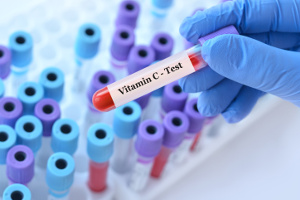Selenium reduces the risk of colorectal cancer
A new scientific study confirms previous research that has shown that a population with low selenium levels have an increased risk of developing colorectal cancer. This inverse relationship between selenium and colorectal cancer is most evident in women.
Cancer in either the colon, rectum or appendix is collectively referred to as colorectal cancer. It is the second leading cause of cancer-related deaths in Europe.
The new study was made by Dr David Hughes from the Centre for Systems Medicine with colleagues from the United States and Europe. The study used data from a very large, previous study called EPIC with 521 448 participants from 10 European countries, most of whom were women. These data provided the opportunity to compare the development of colorectal cancer in Europe with two reliable markers of selenium status, which is the total amount of selenium in the blood and selenoprotein P (Sepp). The researchers found a clear reduction in the risk of colorectal cancer of 11% for each 0.806 mg/l. increase in the blood of the selenium-containing protein Sepp.
Conclusions
The study concludes that in a population who are not getting an optimal amount of selenium, there is a clear correlation between increased selenium levels and a reduced risk of developing colorectal cancer and that this risk reduction is most pronounced for women. An optimum selenium intake may vary with age, gender, health status and individual genetic conditions.
Most significant effect in women
Researchers find it interesting that the effect of a higher selenium levels is most evident in women. The recommendation that men should consume slightly more selenium than women is based on data from animal studies. Recent studies show that estrogen affects blood selenium and selenium in selenoproteins. Women also secrete more selenium in the urine than men, suggesting that men are better at keeping their selenium. Women may also be more sensitive to selenium deficiency than men, but this is an area where we still lack knowledge.
Previous studies
The study reduces the uncertainty that still exists about the potential impact of selenium on a number of cancers. An uncertainty likely rooted in previous studies of selenium's cancer prevention effect, which showed no change in cancer incidence, because selenium was given to a population in the United States, which already had a sufficient selenium intake.
Documented prevention with Danish produced selenium
Previous research with a Danish-produced Selenium + Zinc preparation has shown a 50% reduction of colon polyps, and the preventive effect 13 years later was almost unchanged at 40%. Polyps in the colon can be a precursor to colorectal cancer.
About selenium
Selenium is an essential micronutrient for human health, whose biological activity and potential anti-cancer properties probably are caused by its inclusion in a series of selenium-containing proteins encoded by 25 different genes and has to do with cell protection, reduction of oxidative stress and inflammation.
Refs.
Bonelli L, et al. Antioxidant supplement and long-term reduction of recurrent adenomas of the large bowel. A double-blind randomized trial. J Gastroenterol 2012. J Gastroenterol 2013;48(6):698-705.
Hughes DJ, et al. Selenium status is associated with colorectal cancer risk in the European prospective investigation of cancer and nutrition cohort. Int J Cancer 2014. E-pub ahead of print.
Search for more information...
- Created on .








 Most people are unaware of vitamin C’s key role in mental health and mood. According to a large population study that is published in Frontiers in Nutrition, having higher levels of vitamin C in the blood is linked to a lower risk of depression. The official dietary recommendations for vitamin C only focus on preventing the potentially lethal deficiency disease called scurvy, and things like stress, ageing, stimulant use, overweight, infections, and chronic illnesses can increase your need for the nutrient.
Most people are unaware of vitamin C’s key role in mental health and mood. According to a large population study that is published in Frontiers in Nutrition, having higher levels of vitamin C in the blood is linked to a lower risk of depression. The official dietary recommendations for vitamin C only focus on preventing the potentially lethal deficiency disease called scurvy, and things like stress, ageing, stimulant use, overweight, infections, and chronic illnesses can increase your need for the nutrient.


 "After about one week of taking the Q10 supplement I could feel a huge difference," says 23-year old Alan Piccini, who has been suffering from extreme fatigue and muscle aches ever since he was a child.
"After about one week of taking the Q10 supplement I could feel a huge difference," says 23-year old Alan Piccini, who has been suffering from extreme fatigue and muscle aches ever since he was a child. “Taking capsules with co-enzyme Q10 has freed me of the severe side effects of my cholesterol lowering medicine,” Mrs Franken explains.
“Taking capsules with co-enzyme Q10 has freed me of the severe side effects of my cholesterol lowering medicine,” Mrs Franken explains.